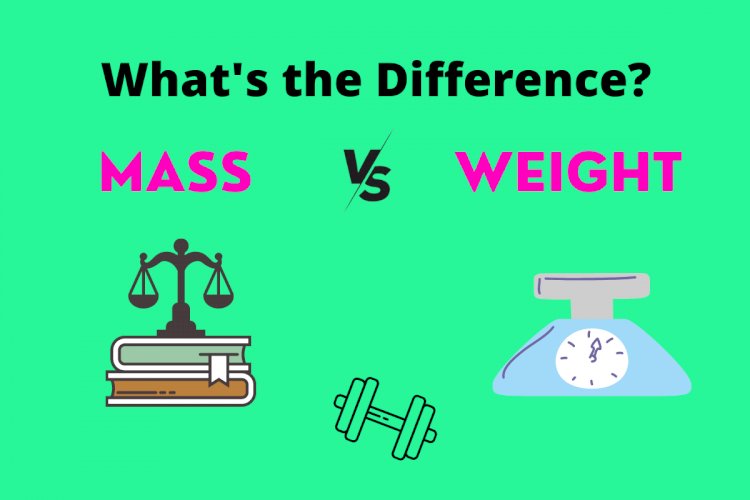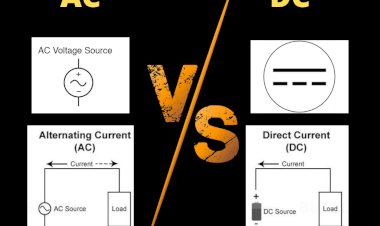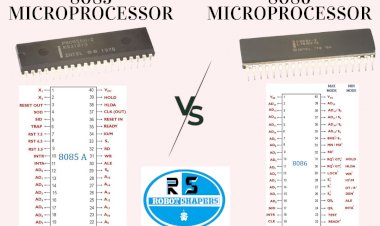Difference Between Mass and Weight
Difference Between Mass and Weight : Mass is the measure of the amount of matter in a body. Weight is the measure of the amount of force acting on a mass due to acceleration of gravity. Your mass is the same no matter where you go in the universe. Your weight, on the other hand changes from place to place.

The terms “mass” and “weight” are used mutually in ordinary conversation, but the two words don’t mean the same thing. The difference between mass and weight is that mass is the amount of matter in a material, while weight is a measure of how the force of gravity acts upon that mass.
- Mass is the measure of the amount of matter in a body. Mass is denoted using m or M. The mass of the body is constant every where in universe.
m = F/a [ Unit Kilogram(Kg) ]
- Weight is the measure of the amount of force acting on a mass due to the acceleration of gravity. Weight usually denoted by W. Weight of the body is not constant it depends on the location. Weight is massmultiplied by the acceleration due to gravity (g).
W = m * g [ Unit Newton(N) ]
MASS
If you could count up the number of protons, neutrons and electrons in an object (which you apparently can’t), this would be a measure of the mass. The mass is substantially “ how much stuff ” is in an object.
In simpler words, we can say that mass refers to how much material an object consists of. Thus mass refers to both, the property of a physical body as well as the measure of the resistance of the object to acceleration when we apply a net force. A physical body cannot have zero mass. Common units for mass are kilogram and gram.
Mass of a body is an intrinsic/inherent property which is a measure of its inertia. It qualifies the amount of resistance a body attempt to change its state of motion. According to the theory of relativity, mass and energy are equivalent. Mathematically, mass can be defined from Newton’s second law. If the acceleration of a body is a due to a force F, then its mass m is given by,
m = F/a
WEIGHT
A massive body feels attraction due to gravity. The weight of an object refers to the force acting on an object because of gravity. The amount of force applied by a gravitational field (e.g the Earth’s gravity) on an object is called its weight.
Gravitational acceleration is autonomous of the object on which a gravitational force is acting. If the gravitational acceleration due to Earth’s gravitational field is g, the weight W of an object of mass m is given by the gravitational force acting on it.
Weight usually is denoted by W. Weight is mass m multiplied by the acceleration of gravity (g). Weight’s unit is Newton and Pound.
W = F *g = m * g
Since the weight of a body depends on the gravitational field, a body with same mass can have different weights at different places. The weight of a massive object can even be zero.
Here’s the basic difference between Mass and Weight :-
Basis of Distinction |
Mass |
Weight |
|
Definition |
Mass is the measure of the amount of matter present in a body. |
Weight is the measure of the amount of force acting on a mass due to acceleration of gravity. Weight increases or decreases with high or low gravity. |
|
Meaning |
Mass is the measure of inertia. |
Weight is the measure of force. |
|
Denotation |
Mass is denoted by “M” or “m”. |
Weight is denoted by “W”. |
|
Type of quantity |
Mass is a fundamental or base quantity. |
Weight is a derived quantity |
|
Dimensional Formula |
[M] |
Weight has the dimension of force which is (mass * acceleration). The dimension is [MLT-2]. |
|
Physical Quantity |
Mass is a scalar quantity because It has magnitude. |
It is a vector quantity because, its got the magnitude and directs toward the Earth’s centre or other gravity. |
|
Location |
It remains the same everywhere, irrespective of location. |
Weight varies depending on the location. |
|
Formula |
Mass = Volume × Density Mass = Force/Acceleration |
Weight = mass × acceleration due to gravity (g). |
|
Units |
SI Unit : Kilogram (kg) CGS Unit : Gram (g) FPS Unit : Pound (lb) |
SI Unit : Newton (N) or kgms-2. CGS Unit : dyne (dyn) or gcms-2. FPS Unit : poundal (pdl) or lbfts-2. |
|
Gravitational Effect |
Since mass is an intrinsic property, it does not depend on gravity. It always remains constant if the body does not emit or absorb any energy by any means. |
Weight changes with the gravitational field as it is proportional to the gravitational acceleration (g) i.e it varies from place to place. |
|
Zero gravity Condition |
Mass can never be zero. |
Weight can be zero where there is no gravity |
|
Measuring Instrument |
Mass can easily be measured using any ordinary balance like beam balance, lever balance, pan balance, etc. Mass of subatomic charged particles having very small mass can be measured using mass spectrometer. |
Weight can be measured by a weight scale, spring balance or by using its formula.
|

 Arindam Deshmukh
Arindam Deshmukh 



















